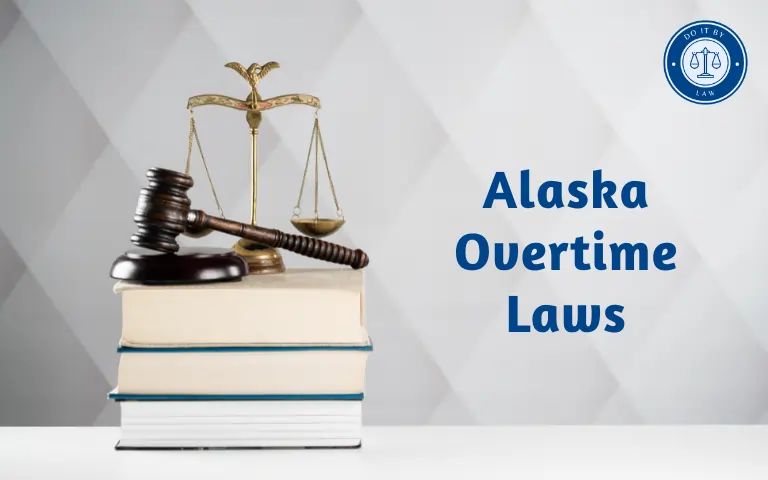Weird Laws in Alaska: What do you need to know
Alaska certainly has its fair share of laws that might raise an eyebrow for newcomers, but it’s crucial to remember that these laws often have historical or practical reasons behind them. Here are some examples of well-known “weird” laws in Alaska, along with potential justifications:
When Weird Laws in Alaska Was Enacted and Why
While Alaska is known for its quirky laws, it’s important to remember that many of these laws have a practical or historical reason behind them. Identifying a specific enactment date for all “weird” laws is difficult, as the reasons and timing vary greatly. However, I can shed light on the potential origins and justifications for a few well-known examples:
1. Whispering in someone’s ear while moose hunting:
- Possible origin: Enacted in the 1930s, this law aimed to prevent spooking moose and potentially leading to unsafe situations for hunters. Moose can be unpredictable and aggressive, so startling them by whispering could increase the risk of injury.
- Justification: Protecting hunter safety and ensuring responsible hunting practices.
2. Viewing moose from an airplane on the same day you plan to hunt:
- Possible origin: Enacted in the 1960s, this law was implemented to prevent scouting moose from the air, providing an unfair advantage to hunters and potentially impacting moose populations.
- Justification: Ensuring fair hunting practices and sustainable moose populations.
3. Kangaroos not allowed in barber shops:
- Possible origin: Uncertain, but likely enacted in the early 20th century based on concerns about exotic animals in public spaces. Kangaroos are not native to Alaska and could pose safety or public health risks if not properly contained.
- Justification: Public safety and preventing the spread of potential diseases from non-native animals.
4. Pushing a live moose out of a moving airplane:
- Possible origin: This is primarily a humorous myth with no legal basis. No such law exists in Alaska.
Who Weird Laws in Alaska Apply To
The “weird” laws in Alaska typically apply to everyone within the state’s jurisdiction, regardless of their residency or visitor status. This means that both residents and visitors are subject to these laws.
- Specific details of the law: Each law might have specific exceptions or limitations based on factors like age, profession, or location. For example, the hunting regulations might have different requirements for residents and non-residents.
- Intent and awareness: While ignorance of the law doesn’t excuse violations, authorities might consider intent and awareness when enforcing certain laws. If you’re unsure about a specific law, it’s best to err on the side of caution and ask for clarification or avoid potentially risky actions.
- Specific circumstances: Depending on the context and intent, some laws might be selectively enforced, focusing on situations where potential harm or nuisance outweighs accidental or minor occurrences.
Key Provisions, Requirements, and Restrictions:
Moose Droppings Disposal Act
- Prohibits stockpiling over 5 gallons of moose manure within city limits without a permit.
- Hazardous moose waste must undergo proper disposal through municipal waste management systems within 72 hours of accumulating.
- Throwing moose meadow muffins, steamers, or colon cocoa bombs at any person, structure, or vehicle incurs additional penalties.
Salmon Spawning Public Decency Standards
- Outlaws viewing or interfering with sexually active salmon in Alaska waterways.
- Prohibits characterizing spawning salmon acts using profane or inappropriate “colorful frontier language”.
- Mandates give aroused fish ample berth and privacy during intimate embraces.
Caribou Manure Measurement Regulations
- Dictates allowable size discrepancies between stated and measured caribou chip dimensions.
- Standardizes protocols for determining fecal dimensions, weight, and moisture content.
- Requiresbiennial updated photographs documenting world record contender droppings.
Penalties for Violating Laws
- Illegally hoarding hazardous moose fecal matter – Misdemeanor with fines up to $1,000 and/or 6 months jail.
- Disturbing sexually aroused salmon or vulgarity near spawning grounds – Misdemeanor with fines up to $500 and/or 3 months in jail.
- Exaggerating caribou chip size in marketing – Civil offense with fines up to $250 per violated dropping.
Recent Changes or Proposed Updates
- The internet spotlighted Alaska’s silly statutes in recent years prompting reexamination but laws remain unchanged as of 2023. Attempts to repeal the laws get little public support or quickly run out of legislative steam.
- Disposing of moose manure makes sense around cities but restrictions seem burdensome for rural residents. Proposed updating exemptions for agricultural application.
- Questions raised whether violated salmon even care if activities appear indecent to humans. Proposed limiting enforcement only if disruption causes measurable ecosystem impact rather than moral judgment.
- Truth in caribou chip advertising concerns seem less important given the laws mostly referenced nowadays as examples of silly outdated regulations. Proposed repeal efforts stalled.
Weird Laws in Alaska Controversies, Debates, and Challenges
While these odd laws aim not to harm others, critics consider them government overreach and infringement on personal liberties. Supporters argue the quirky laws preserve public order and moral decency. But in recent years, lax enforcement and internet fame mostly spawned amusing legal curiosities rather than serious legislative debates.
Occasionally defiant North Pole residents stage protests trying to get the Moose Droppings Disposal Act repealed by inundating City Council meetings with pungent pieces of political commentary. While the stunts garner headlines, Council members just end up exiting quickly before passing gas masks around.
Overzealous rookie wildlife troopers sometimes stake out salmon spawning orgies attempting to catch offenders. But more experienced veterans dismiss it as a snipe hunt snarking, “Good luck building a case identifying culprit fish!”
Alaska makes regular appearances on national weird state law lists largely thanks to the Caribou Chip Regulations. But caricaturing given the Governor’s rapid defunding and demoting the State Caribou Chip Inspector position to part-time gig checking dimensional claims on eBay.
Weird Laws in Alaska Key Takeaways
While these quirky cornerstones of Alaska legislation may seem silly and trivial, they represent the unexpected legal curiosities found when the independent frontier spirit gets codified.
We recommend exercising common sense when disposing of animal droppings, avoiding interference with nature’s private moments, and double-checking claims when purchasing iconic Alaska state souvenirs.
But fear not about accidentally breaking some obscure statute in America’s wildest state. You likely only face true legal jeopardy if disrupting neighbors with flying moose nuggets or narrating vivid salmon schtupping scenes.
Alaska’s eccentric laws endure despite frequent head scratching and chuckling because repealing the acts could mean losing delightful legislative oddities forever immortalizing the Last Frontier’s colorful history.







